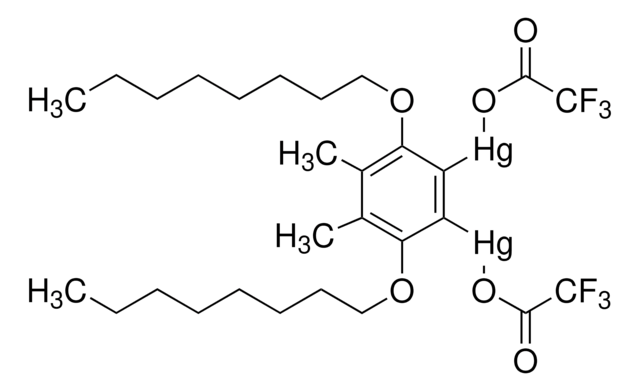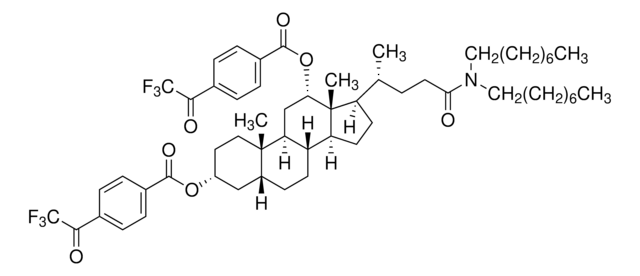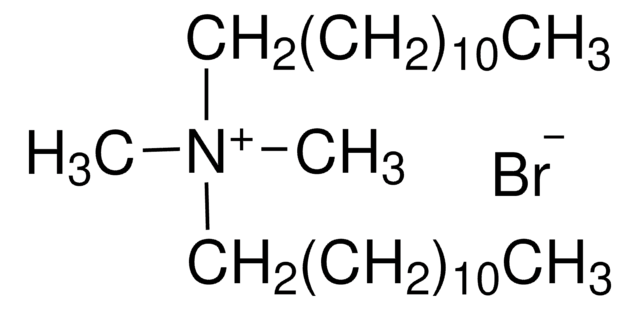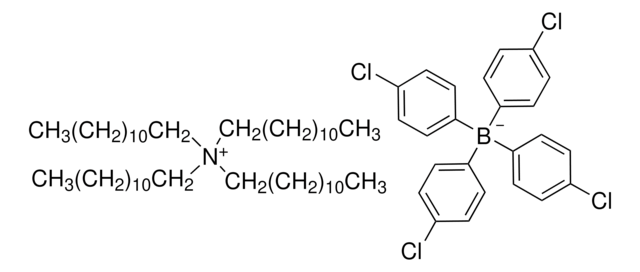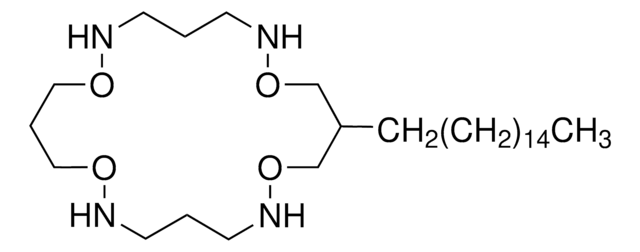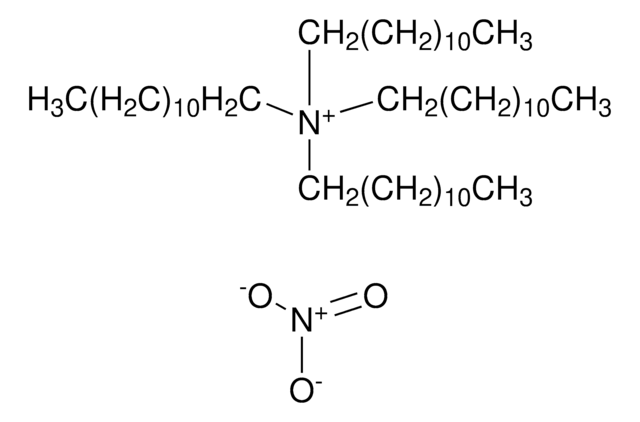367729
Tridodecylmethylammonium chloride
98%
Sinónimos:
Methyltridodecylammonium chloride
About This Item
Productos recomendados
Ensayo
98%
mp
110-112 °C (lit.)
cadena SMILES
[Cl-].CCCCCCCCCCCC[N+](C)(CCCCCCCCCCCC)CCCCCCCCCCCC
InChI
1S/C37H78N.ClH/c1-5-8-11-14-17-20-23-26-29-32-35-38(4,36-33-30-27-24-21-18-15-12-9-6-2)37-34-31-28-25-22-19-16-13-10-7-3;/h5-37H2,1-4H3;1H/q+1;/p-1
Clave InChI
SBHRWOBHKASWGU-UHFFFAOYSA-M
¿Está buscando productos similares? Visita Guía de comparación de productos
Aplicación
- Catalyst in the transesterification of methyl esters with glycidol to synthesize glycidyl esters.
- Bulky lipophilic cationic additive for polyaniline membranes.
Palabra de señalización
Warning
Frases de peligro
Consejos de prudencia
Clasificaciones de peligro
Eye Irrit. 2 - Skin Irrit. 2 - STOT SE 3
Órganos de actuación
Respiratory system
Código de clase de almacenamiento
11 - Combustible Solids
Clase de riesgo para el agua (WGK)
WGK 3
Punto de inflamabilidad (°F)
Not applicable
Punto de inflamabilidad (°C)
Not applicable
Equipo de protección personal
dust mask type N95 (US), Eyeshields, Gloves
Elija entre una de las versiones más recientes:
¿Ya tiene este producto?
Encuentre la documentación para los productos que ha comprado recientemente en la Biblioteca de documentos.
Los clientes también vieron
Nuestro equipo de científicos tiene experiencia en todas las áreas de investigación: Ciencias de la vida, Ciencia de los materiales, Síntesis química, Cromatografía, Analítica y muchas otras.
Póngase en contacto con el Servicio técnico





